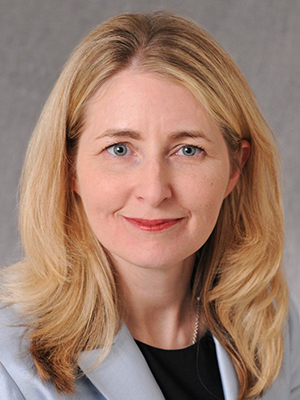Staff and volunteers have been working all year to make sure the ACR/ARP Annual Meeting delivers educational sessions covering the subjects that matter most to attendees and their patients.
Victoria Shanmugam, MD, FACR, FACP, director, Division of Rheumatology at the George Washington University Medical Faculty Associates, Washington, D.C., and chair of the Annual Meeting Planning Committee, said that through the Call for Proposals process, every proposal is reviewed. Every accepted session undergoes peer review to guarantee the Annual Meeting audience hears from the best speakers about the most important topics.
“An amazing team of people make the ACR/ARP Annual Meeting happen,” Dr. Shanmugam said.
Visit the 2019 ACR/ARP Annual Meeting Online Program to learn more about this year’s sessions. Here’s a quick look at just some of the exciting sessions planned for this year’s Annual Meeting:
Basic Science
Gregg Silverman, MD, professor, Department of Medicine, NYU Langone Health, New York, who chairs the Annual Meeting Planning Subcommittee that planned the Basic Science Track, said that the subcommittee focused on covering diverse topics that would appeal to a wide audience. Look for these presentations:
- Biomarkers, Precision Medicine & Machine Learning: Speakers will explore how artificial intelligence-driven machine learning algorithms may integrate biomarker data to improve care for individual patients and guide more effective care.
- Immunology Update: Harnessing Metabolism to Treat Rheumatic Disease: Three sessions will review new data on the immune system’s role and how rheumatologists can make the most of cutting-edge information and its practical implications—how it relates to your patient and their disease.
- Tipping the Balance from Preclinical Autoimmunity to Overt RA: This session will explore from a molecular perspective the conundrum of why some patients with RA-related antibodies in their blood don’t develop active disease despite having the biomarkers that identify rheumatoid arthritis.
Clinical Science
Rebecca L. Manno, MD, MHS, assistant professor of medicine, Johns Hopkins University’s Division of Rheumatology, Baltimore, who chaired the Meet the Professor/Workshop/Study Group Subcommittee of the Annual Meeting Planning Committee, said the format for this year’s Clinical Science Track will be less didactic while continuing to offer the most cutting-edge content available in rheumatology. Expect sessions that embrace next-generation communications technology in formats that embrace the way people learn today.
Some of this year’s featured topics include:
- Discussions about four newly drafted guidelines, including large vessel vasculitis, ANCA-associated vasculitis, osteoarthritis, and gout.
- Non-rheumatologic diseases rheumatologists often encounter in their patients, including NAFLD (non-alcoholic fatty liver disease) non-alcoholic steato-hepatitis, neuromyelitis optica, relapsing polychondritis and granulomatosis with polyangiitis, and histiocytic disorders.

